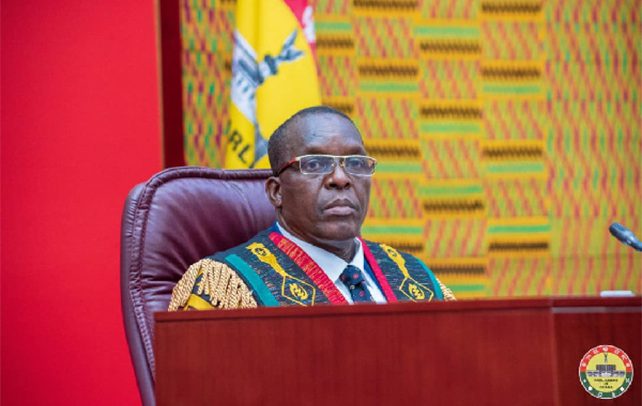Alban Bagbin
The Speaker of Parliament, Alban Sumana Kingsford Bagbin, has cautioned parliamentary Hansard reporters and staff against releasing unapproved versions of the Hansard to the public, warning that such actions undermine democracy and distort the official record of parliamentary proceedings.
Addressing participants at the opening of the 11th Biennial Conference of the Commonwealth Hansard Editors Association – Africa Region (CHEA-AR) in Accra yesterday, Mr. Bagbin stressed that the Hansard, the official record of debates in Parliament, must reflect only what has been approved by the House and prepared under the Speaker’s authority.
“The Hansard is not what you sit, listen to and record. It must be ‘as nearly as possible verbatim’ and approved by the House before publication. When you come, record, and send out your notes as the official report, you are doing a great disservice to Parliament and damaging democracy, particularly the African version of democracy,” the Speaker said.
Mr. Bagbin recounted an instance where a document from a parliamentary Hansard reporter, not an approved Hansard, was used in a Supreme Court case, saying such incidents risk misinforming the public and judicial bodies.
He reminded staff that their work is more than mere transcription, describing them as “a special specialty” distinct from the general public service, with a critical role in protecting the integrity of Parliament’s records.
The Speaker also underscored the dangers of personal bias and perception in reporting parliamentary debates, insisting that the only safeguard is strict adherence to the Standing Orders, which require that the Hansard be prepared under the Speaker’s authority.
“The official report is the document of the House; not yours. Without you, there is no Parliament. But remember, it is the House that owns the Hansard,” Mr. Bagbin emphasised.
The conference, themed “Charting the Future of Hansard: Embracing Innovation and Technology for Enhanced Parliamentary Reporting in Africa,” brought together parliamentary reporting professionals from across the continent to discuss innovation, technology, and the preservation of parliamentary records.
Mr. Bagbin urged participants to produce proposals that would strengthen the security and integrity of Hansard records in the digital era, warning that misinformation, disinformation, and deepfakes now pose serious threats to parliamentary democracy.
Embrace AI, Social Media
The Majority Leader, Mahama Ayariga also called on the Hansard Department to leverage artificial intelligence (AI) and social media tools to make parliamentary records more accurate, accessible, and relevant to citizens.
Mr. Ayariga emphasised that Hansard preserves the legacy of every member who has served in the country’s legislature.
“We as parliamentarians need to take the Hansard seriously and make sure that it is a true reflection of who we are, what we stood for, and what we said on the floor of Parliament,” he said.
Highlighting the rapid global shift into an AI-driven era, the Member of Parliament (MP) for Bawku Central noted that emerging technologies now allow real-time transcription and preservation of debates.
He urged the Hansard team to align its records with what citizens witness through Parliament’s live television broadcasts.
“If there’s a discrepancy between what they heard and what you have written, clearly there will be controversy between you and the public,” he warned.
Mr. Ayariga also proposed integrating notification systems into the Hansard process. Using the example of social media alerts, he suggested that relevant ministries, agencies, and district assemblies could be automatically notified when mentioned during parliamentary debates.
“If a particular district assembly is mentioned, the public relations officer should be alerted. If welfare issues are discussed, the director in charge should get notified,” he explained.
By Ernest Kofi Adu, Parliamentary Correspondent


